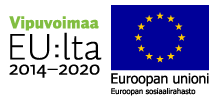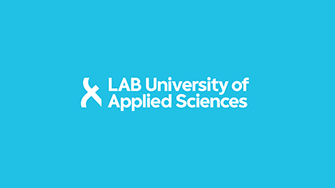Neighbour – community living model
Neighbour – community living model
The purpose of Neighbour – community living model -Project is to strengthen welfare, social inclusion and participation skills of adult people with intellectual disabilities by searching solutions for independent living and preventing social exclusion.
The aim of the Project is to expand and develop the social housing property management model from supportive living guidance towards inclusive community-based Neighbourhood-community model.
During the Project, the competence of the service system and employees working in services and housing for people with intellectual disabilities increases enabling continuity of new developed models after the Project. The Neighbourhood-model can be disseminated in national level for further and wider use.
In the target group of the Project are adult people with intellectual disabilities living independently or who are just leaving from institutional living or living at their childhood home for independent living.
The Neighbourhood –community model will be created in co-operation with people in target group, Lahti University of Applied Sciences, Päijät-Häme Joint Authority for Health and Wellbeing, Saimaa University of Applied Sciences and South Karelia Social and Health Care District (Eksote).
The Project will be implemented in four-phase process. The first phase includes analysis of current state in intellectually disabled people’s independent living systems in Finland and benchmarking national and international social housing property management models. The second phase includes planning and piloting the inclusive social housing property management model, the Neighbourhood-community model. Increasing the competence of service system and employees are the tasks of the third project phase. In the fourth phase, cost effects will be estimated and scaled into national level and financing models will be explored. In addition, in this phase the models of communitybased housing will be evaluated and modelled and the good practices will be disseminated for further use.
As the result of the Project the current model of supportive housing has been developed to Neighbourhood-community model and the regional resident-based and innovative pilots continue as permanent practice. In addition, social inclusion of adult people with intellectual disabilities has strengthened and competence in resident-based development has increased among professional staff working in housing service system.
The purpose of Neighbour – community living model -Project is to strengthen welfare, social inclusion and participation skills of adult people with intellectual disabilities by searching solutions for independent living and preventing social exclusion.
The aim of the Project is to expand and develop the social housing property management model from supportive living guidance towards inclusive community-based Neighbourhood-community model.
During the Project, the competence of the service system and employees working in services and housing for people with intellectual disabilities increases enabling continuity of new developed models after the Project. The Neighbourhood-model can be disseminated in national level for further and wider use.
In the target group of the Project are adult people with intellectual disabilities living independently or who are just leaving from institutional living or living at their childhood home for independent living.
The Neighbourhood –community model will be created in co-operation with people in target group, Lahti University of Applied Sciences, Päijät-Häme Joint Authority for Health and Wellbeing, Saimaa University of Applied Sciences and South Karelia Social and Health Care District (Eksote).
The Project will be implemented in four-phase process. The first phase includes analysis of current state in intellectually disabled people’s independent living systems in Finland and benchmarking national and international social housing property management models. The second phase includes planning and piloting the inclusive social housing property management model, the Neighbourhood-community model. Increasing the competence of service system and employees are the tasks of the third project phase. In the fourth phase, cost effects will be estimated and scaled into national level and financing models will be explored. In addition, in this phase the models of communitybased housing will be evaluated and modelled and the good practices will be disseminated for further use.
As the result of the Project the current model of supportive housing has been developed to Neighbourhood-community model and the regional resident-based and innovative pilots continue as permanent practice. In addition, social inclusion of adult people with intellectual disabilities has strengthened and competence in resident-based development has increased among professional staff working in housing service system.
Project period
-
Project state
Finished
Project area
National
Project funding
ESR 2014-2020 Flat Rate

LAB role
Lead partner
Unit
Health Care and Social Services
Project focus area
Human well-being


